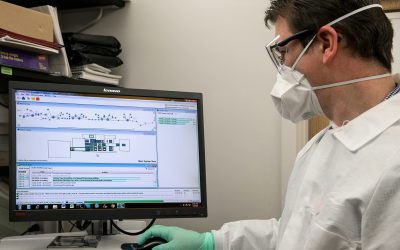Using hospital software is essential for optimizing processes and providing effective patient care. Hiring the appropriate IT candidates becomes crucial for ensuring a successful software deployment process. Because a solid IT staff is the cornerstone of a modern, patient-centered healthcare setting. Look out for these 5 crucial abilities when choosing IT specialists to develop hospital software for hospital administrators.
1. Technical Proficiency
First and foremost, candidates must possess a strong foundation in information technology. Proficiency in programming languages, database management, networking, and systems administration are essential skills for IT professionals working on hospital software implementation. A solid understanding of software development life cycle (SDLC) processes is also crucial, enabling candidates to navigate the various stages of implementation effectively.
2. Healthcare Knowledge
While technical expertise is crucial, knowledge of healthcare systems and processes is equally important. IT candidates who are well-versed in the intricacies of hospital operations, clinical workflows, and regulatory compliance will be better equipped to understand the unique challenges of software implementation in a healthcare setting. Familiarity with healthcare terminologies, electronic health records (EHR), and interoperability standards will greatly facilitate effective communication and collaboration with healthcare professionals.
3. Problem-Solving & Analytical Skills
Hospital software implementation often involves complex challenges and requires IT professionals to think critically and problem-solve on their feet. Candidates should possess strong analytical skills to identify potential bottlenecks, troubleshoot issues, and implement effective solutions. The ability to break down complex problems into manageable components and develop logical, step-by-step approaches will ensure smooth implementation and minimize disruptions to hospital operations.
4. Communication & Collaboration
Effective communication and collaboration skills are crucial for IT professionals working on hospital software implementation. They must be able to clearly articulate technical concepts to both technical and non-technical stakeholders, including healthcare professionals and hospital administrators. Additionally, candidates should be adept at collaborating with cross-functional teams, including software developers, project managers, and end-users, to ensure a cohesive and successful implementation process.
5. Adaptability
The IT landscape is constantly evolving, and healthcare technology is no exception. Candidates should exhibit adaptability and a willingness to learn new technologies and industry trends. The ability to quickly grasp new concepts and adapt to changing requirements will enable IT professionals to stay ahead of the curve, ensuring the successful implementation of innovative solutions that enhance patient care and operational efficiency.









